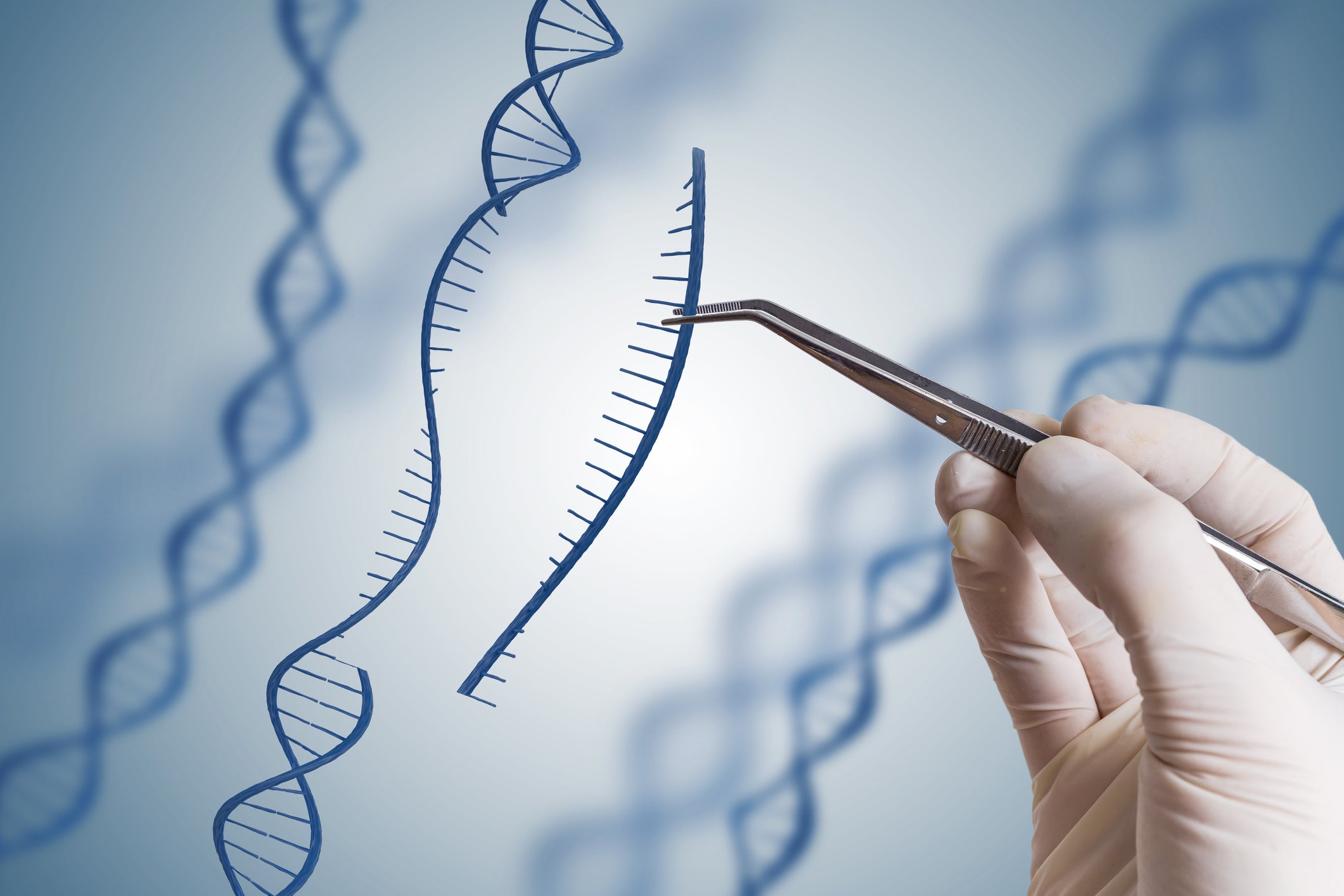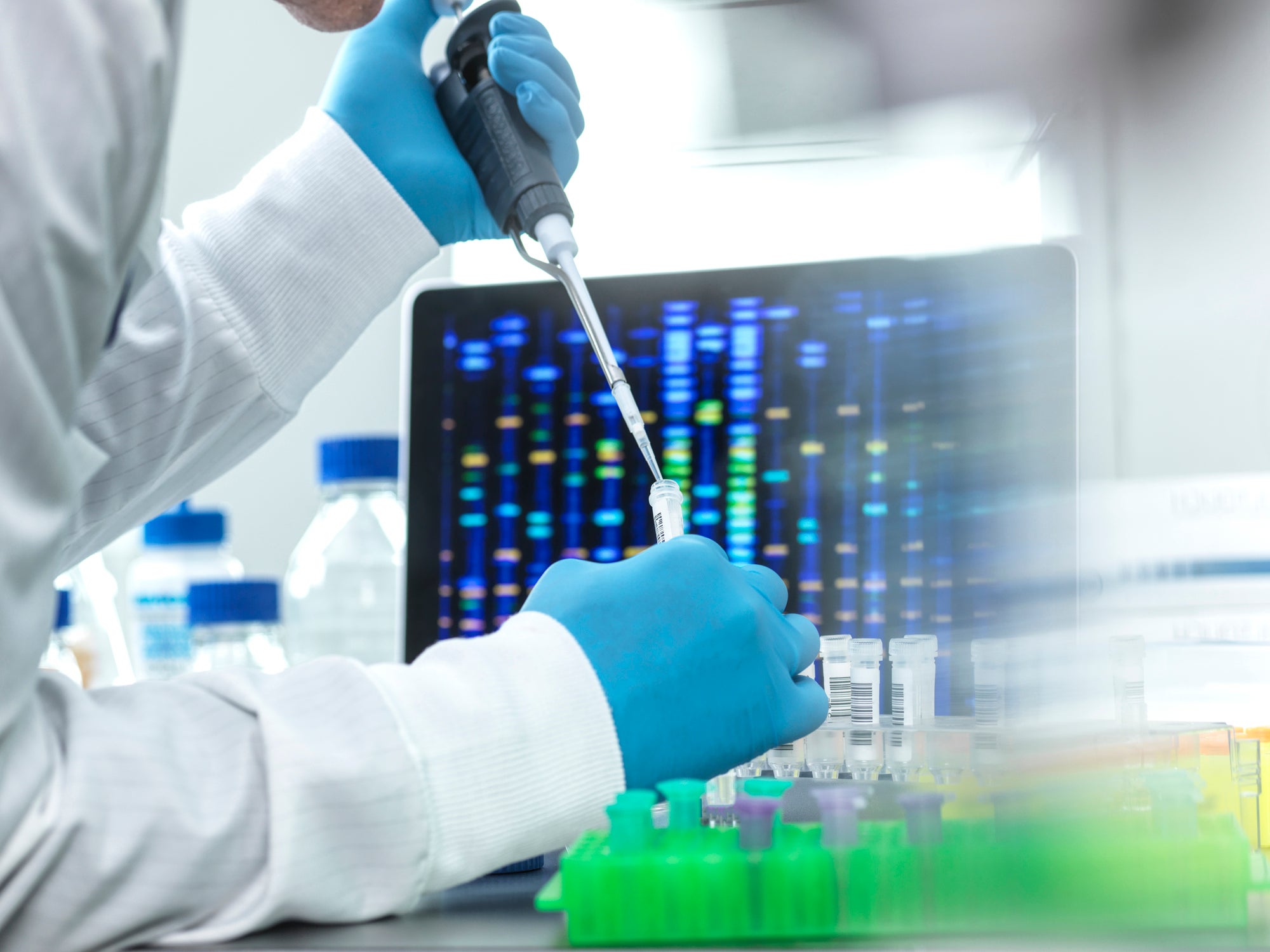Hopes and fears for the future of biomedicine
Extract: This strand of science has the potential to extend lives, but also to take them. Martin Rees explores what could happen as this technology advances


Advances in biomedicine have vastly improved healthcare over the world, including its poorest countries. And they’ve extended lifespans; over the past 25 years, the average human has gained seven years of life expectancy. The gain is more than just staying alive: the number of healthy years we can expect to enjoy has risen too. In the Covid-19 pandemic, science has been our salvation – vaccines were developed with unprecedented speed and remember that after 40 years we still don’t have an effective one against HIV. The future benefits to humanity could be greater still.
At the same time, this progress creates vulnerabilities and ethical dilemmas. Most obviously, the benefits are still unevenly shared, both within countries and, even more, between richer and poorer nations. Reducing these inequalities is surely imperative. But, sadly, the trend is now in the wrong direction: there’s too much focus on “diseases of the rich” rather than on infectious diseases.
Throughout the history of medicine, people have recoiled at innovations that seem to go against nature, including vaccination, transfusions, artificial insemination, organ transplants and in-vitro fertilisation. The fact that these are unexceptionable today is a reminder that squeamishness at the new is not a reliable guide to what becomes deemed ethically defensible. More recent techniques that are still controversial include stem cell research and mitochondrial transplants (so-called three-parent babies). The gulf between what medical science may enable us to do, and what it is prudent or ethical actually to do, will shift, widen and, in many cases, be difficult to cope with.
The cost of sequencing DNA has plummeted dramatically. The decoding of the first human genome, completed in 2003, was quintessential Big Science – an international project with a $3bn budget. But the cost of human genome sequencing has fallen to below $1,000, and soon it will be routine for all of us to get sequenced. At the same time, it has become feasible to synthesise genes and even simple genomes from scratch.
However, most people distinguish between an intervention that would remove something harmful, which is welcome, and one that would enhance what we already have, which they fear. Whether or not this difference is morally significant (or even, in many cases, meaningful), the actual prospect of genetic enhancement of humans is remote. A few genetic diseases, including Huntington’s, are caused by a single gene that could be snipped out by the CRISPR-Cas9 gene-editing technique. But most, such as schizophrenia or a susceptibility to Alzheimer’s or cancer, are the product of hundreds or thousands of genes, each tweaking the probability of a person having the disease by a tiny amount.
This may be even truer of traits and talents such as height, intelligence and personality. Only when the DNA and trait profiles of many millions of people are available will it become possible (using pattern-recognition systems aided by AI) to identify desirable combinations of genes. Not until this can be done – and genes can be confidently synthesised without inducing new “downsides” – will “designer babies” become conceivable.

But there are genuine concerns about where advancing genetics could take us. (Indeed, there is widespread reluctance to properly discuss the issue, because it seems redolent of the now anathematised eugenic movements in the first half of the 20th century.
Research on ageing exemplifies such concerns: there is an obvious incentive to pursue research with the aim of prolonging our healthy lifespan. “Altos” laboratories aiming to address these problems have been set up in California (in the San Francisco Bay area and in San Diego) and in Cambridge (UK), funded by some US billionaires – people who, when young, aspired to be rich; and having achieved riches, want to be young again – that’s not so easy!
Will the benefits be modest and incremental? Or is ageing a “disease” that can be held at bay or even eliminated? Dramatic life extension, if it proved possible at all, would initially be the privilege of a wealthy elite – a new kind of fundamental inequality. But if it became widespread, it would plainly be a real “wild card” in population projections, with huge social ramifications.
If the relevant technologies continue to advance, there seems a real long-term prospect that human beings – their brains and their bodies – could be ‘enhanced’ via genetic and cyborg modification
In addition to the distinction between curing and enhancing, many people draw a line between genetic manipulations whose effects are restricted to individuals’ own bodily tissues and those that reach into the eggs or sperm and are passed down to their progeny. Indeed, manipulation of the germ line of other species forces us to think hard about our ethical intuitions. There has, for instance, been an attempt in parts of Brazil and other areas to sterilise and thereby reduce – and even wipe out – the species of mosquito that spreads the Zika and dengue viruses; the trials recorded a 90 per cent reduction in local populations of the species. Is it bad to “play God” in this way? Similar techniques are being proposed that could preserve the unique ecology of the Galapagos Islands by eliminating invasive species such as black rats.
If the relevant technologies continue to advance, there seems a real long-term prospect that human beings – their brains and their bodies – could be “enhanced” via genetic and cyborg modification. Moreover, this future evolution – a kind of secular “intelligent design” leading even to a new species – might take only centuries – in contrast to the thousands of centuries needed for Darwinian evolution.
This speeded-up evolution, incidentally, would be a game changer. When we admire the literature and artefacts that have survived from antiquity, we feel an affinity, across a time gulf of thousands of years, with those ancient artists and their civilizations. But we can have zero confidence that the dominant intelligences a few centuries hence will have any emotional resonance with us — even though they may have an algorithmic understanding of how we behaved.

Genetic manipulations are by no means the only ethical challenges that will sharpen up as biomedical science advances. We will also face acute dilemmas about treating those at the beginning and those at the end of their lives. Everyone treasures the prospect of living out more healthy years, while most people dread the prospect of being kept alive in pain or with severe disability or dementia. Assisted dying or voluntary euthanasia is now legalised, with safeguards, in several European countries, and several US states.
In the UK public opinion is 80 per cent in favour of legalisation. Professional medical opinion is shifting towards acceptance, and seems now evenly balanced; one can even find archbishops on both sides of the argument. Likewise, the ability to treat premature babies can be miraculous, but it might also mean saving children who will never flourish, laying out an ethical minefield. These are instances where there’s a blurred boundary between issues where scientists deserve special attention as experts, and those that are ethical rather than technical, where they speak, along with the rest of us, only as citizens.
Research on viruses, such as the arch-villain of Covid-19, raises dilemmas that are both incendiary and timely. In 2011 researchers at the Erasmus University in the Netherlands and at the University of Wisconsin in the US showed it was surprisingly easy to make the H5N1 influenza virus both more virulent and more transmissible – defying the evolutionary dynamic that ordinarily trades one of these features against the other since a virus that kills its host can no longer use that host to spread itself. These Faustian “gain-of-function” experiments were justified as a way to stay one step ahead of natural mutations, but they could be used with evil intent. The US federal government banned these experiments in 2014, but for reasons that seemed somewhat unclear, relaxed the rules three years later.
To be sure, governments, and even terrorist groups with specific aims, will always be inhibited from releasing bioweapons, because no one can predict where and how far they can spread
Although a non-expert, I first wrote about these bio-hazards in 2003, and some better-informed colleagues thought a catastrophe was even more likely to happen than I did. On the Long Bets website maintained by the Long Now Foundation I wagered that “Bioterror or bioerror will lead to one million casualties in a single event within a six-month period starting no later than 31 December 2020”. For humanity’s sake, I of course fervently hoped to lose this bet, and I was not surprised when, in 2017, psychologist Steven Pinker took me up on it, with a $400 stake (the winnings going to charity). Pinker had written two books documenting historical declines in violence, poverty, illiteracy and disease. He contrasted the firm data on those positive trends with the gloom of commentators whose view of the world was in his view biased by non-random samples of the worst things that happened every day, which of course tend to dominate the news media.
Covid-19 was far more devastating than the threshold event I had wagered might occur by 2020. Pinker and I agree that pandemics are an ever-present threat, and probably a growing one because of more congested living and more virus-spreading air travel, but I’d phrased my bet to exclude naturally emerging pandemics: I was envisaging an event resulting from “bioerror or bioterror”. Do we know that Covid-19 was a natural pandemic? In the first week of 2021, our bet came due, and we conferred by email on how to reckon it. Our agreement was instantaneous. Though the consensus seemed to be that the disease was zoonotic – that is, it had jumped from animals to humans, perhaps through an intermediary host (which would make Pinker the winner), we agreed the possibility of leakage from China’s Wuhan Institute of Virology could not be dismissed.
Realistically, given the scientific uncertainty and the deliberate opacity of Chinese authorities, our bet may never be settled. This would be frustrating, not so much for us as for science and public health, but it is not without some comfort. Proof of a lab leak could, as the legal scholar Stephen Carter noted, “give the coronavirus saga what it’s lacked: a villain” and “the formless fear that has immobilised most of the world for the last year and a half, at last given a target, might coalesce into fury”. It could also turn people against science and invite crippling, over-broad regulation, slowing progress against disease, death and disability.

But whatever the origin of Covid-19, we can’t rule out lab leakage in the future (recalling, for example, that a serious foot-and-mouth outbreak in the UK was caused by leakage from the Pirbright laboratory in Surrey in 2007). There is surely a case for enhancing security and independent monitoring of the “level 4” laboratories around the world researching lethal pathogens.
But can we rule out a future release that could be intentional, rather than accidental? To be sure, governments, and even terrorist groups with specific aims, will always be inhibited from releasing bioweapons, because no one can predict where and how far they can spread. The real nightmare would be a deranged loner with biotech expertise who believed, say, that there were too many humans on the planet and didn’t care who became infected, or how many. The ultimate bioweapon would combine high lethality, the transmissibility of the common cold (or the Omicron variant of Covid-19) and a long asymptomatic period allowing massive spreading before countermeasures could be taken.
But I think there’s a serious worry about effective global enforcement of whatever regulations are imposed, on prudential or ethical grounds. Could they be enforced throughout the world any more effectively than drug laws can, or tax laws? Whatever can be done may be done by someone, somewhere. In contrast to the elaborate, conspicuous special-purpose equipment needed to create a nuclear weapon, which can feasibly be monitored by international inspectors, biotech involves small-scale, dual-use technology that will become widely accessible. An increasing number of individuals will acquire the requisite expertise – indeed, biohacking is burgeoning as a hobby and competitive game.
In a future era of vast individual empowerment, where even one malign or foolish act could be too many, how can our open society be safeguarded? The rising empowerment of tech-savvy groups (or even individuals), by biotech – and by cybertech as well – will pose an intractable challenge to governments and aggravate the tension between freedom, privacy, and security.
Extract taken from If Science is to Save Us by astronomer royal Martin Rees out now, Polity Press




Join our commenting forum
Join thought-provoking conversations, follow other Independent readers and see their replies
Comments